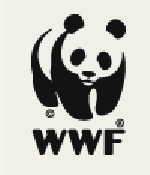Major Responsibilities: Under the direct supervision of Project Co-Manager of TAL PABZ (Terai Arc Landscape, Protected Area and Buffer Zone Project), the Program Associate provides support for coordination of the Hariyo Ban Program in TAL PABZ Project area, and specifically supports planning, implementation, monitoring and reporting for WWF’s component in Hariyo Ban’s activities in the landscape. S/he will work in close coordination with implementing partners and other stakeholders from local to central level to ensure maximum project output while working towards building internal and external partnerships.
Qualifications: A Bachelor’s degree in Natural Resource Management, Environmental Science or a related field is required with at least 2 years of experience in a similar position in the field of landscape level conservation and livelihoods issues. This position requires good communication skills. Project monitoring experience will be a strong advantage.
Interested applicants are requested to download the application form and send the same with an application letter to the email address hr@wwfnepal.org. Please mention the position you are applying for as the subject. Emails without an application letter and completed application form will not be entertained. Only shortlisted candidates will be informed. Detailed TOR for the mentioned position can be downloaded.
This Job is expired. The Company is no longer accepting applications for this position.
WWF is the world’s leading independent conservation organization originated from Switzerland in 1961 and currently running in more than 100 countries across 6 continents. The program started from conservation of wildlife to broader concept of building future where humans can live in harmony with nature. WWF has created 1,480 ecoregions that categorize the world into its natural ecosystems. Nepal with Bhutan, northeast India, southeast Tibet and northern Myanmar, falls under the Eastern Himalaya region housing the threatened species Snow Leopards, Bengal Tigers and One-horned Rhinos.
It was in 1967, WWF initiated WWF Nepal with a rhino conservation program in Chitwan. To keep up with the evolving face of conservation and environmental movement, WWF Nepal’s focus progressed from its localized efforts in conservation of single species in 1960s, integrated conservation and development approach in 1990s, to a new horizon of landscape level conservation encompassing national, regional and global scales of complexity in early 2000s.
